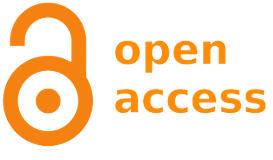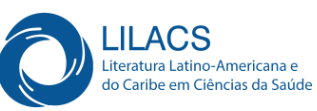Intervenção em autorregulação da aprendizagem com alunos do ensino superior: análise da produção científica
DOI:
https://doi.org/10.5433/2236-6407.2019v10n3p03Palavras-chave:
autorregulação, ensino superior, produção científicaResumo
Pesquisas recentes na área educacional têm evidenciado altas taxas de reprovação e evasão no Ensino Superior. Estudiosos afirmam que o problema pode estar relacionado às dificuldades de aprendizagem dos alunos no contexto acadêmico. A autorregulação da aprendizagem é uma perspectiva amplamente investigada pelo seu potencial em auxiliar os estudantes a aprender melhor. O presente trabalho objetivou analisar a produção científica de artigos sobre programas de intervenção em aprendizagem autorregulada no Ensino Superior, publicados em âmbitos nacional e internacional, no período de 2004 a 2016. Os resultados revelaram o impacto positivo que os programas exerceram no fortalecimento da capacidade de aprender a aprender dos universitários. Os programas de intervenção, em sua maioria, foram realizados em cursos extraclasses, com grupos grandes de alunos e dados coletados por meio de instrumentos de autorrelato. Observou-se um maior número de pesquisas realizadas internacionalmente, com o predomínio do ensino de estratégias no aprendizado de língua estrangeira.
Downloads
Referências
Alexiou, A. & Paraskeva, F. (2010). Enhancing self-regulated learning skills through the implementation of an e-portfolio tool. Innovation and Creativity in Education, 2(2), 3048- 3054.
Ávila, L.T.G., & Frisson, L.M.B. (2012). Educação física na educação infantil: Estratégias para promover a aprendizagem autorregulada. Revista de Educação PUC-Campinas, 17(2), 181-189.
Ávila, L.T.G.; Pranke, A.; & Frison, L.M.B. (2018). O uso de estratégias autorregulatórias para aprender e para ensinar: Formação de professores. Perspectiva, 36(4), 1265-1280.
Bailey H, Dunlosky J, Hertzog C. (2010). Self-regulation training at home: Does it improve older adults' learning? Gerontology, 56, 414-420.
Bandura, A. (2003). Observational learning. In J. H. Byrne, Encyclopedia of Learning and Memory, Nova York, NY: Macmillan, p. 482-484.
Bembenutty, H., & Karabenick, S. A. (2004). Inherent association between academic delay of gratification, future time perspective, and self-Regulated learning. Educational Psychology Review, 16(1), 35-57.
Bembenutty, H., & White, M. C. (2013). Academic performance and satisfaction with homework completion among college students. Learning Individual Differences, 24, 83-88. doi:10.1016/j.lindif.2012.10.013
Berry, R. A. W. (2006). Beyond strategies: Teacher beliefs and writing instruction in two primary inclusion classroom. Journal of Learning Disabilities, 39(1), 11-24.
Bernacki, M., Byrnes, J., & Cromley, J. (2012). The effects of achievement goals and self-regulated learning behaviors on reading comprehension in technologyenhanced learning enviroments. Contemporary Educacional Psychology 37, 148-161. doi:10.1016/j.cedpsych.2011.12.001
Bilimória, H. & Almeida, L. (2008). Aprendizagem auto-regulada: Fundamentos e organização do programa SABER. Revista Semestral da Associação Brasileira de Psicologia Escolar e Educacional (ABRAPEE), 12(1), 13-22.
Boruchovitch, E., Costa, E. R., & Neves, E. R. C. (2005). Estratégias de aprendizagem: Contribuições para a formação de professores nos cursos superiores. In M. C. R. A. Joly, A. A. A. Santos, & F. F. Sisto (Eds.), Questões do cotidiano universitário, (p.239-260). São Paulo, SP: Casa do Psicólogo.
Boruchovitch, E., & Ganda, D. R. (2013). Fostering self-regulated skills in an educational psychology course for Brazilian preservice teachers. Journal of Cognitive Educacional Psychology 12, 157-177. doi:10.1891/1945-8959.12.2.157
Bown, J. (2009). Self-regulatory strategies and agency in self-instructed language learning: A situated view. Modern Language Journal, 93(4), 570-583.
Brunstein, J. C., & Glaser, C. (2011). Testing a path-analytic mediation model of how self-regulated writing strategies improve fourth graders' composition skills: A randomized controlled trial. Journal of Educacional Psychology, 103, 922-938. doi:10.1037/ a0024622
Burke, L. A.; & Williams, J. M. (2008). Developing young thinkers: An intervention aimed to enhance children's thinking skills. Thinking Skills and Creativity, 3, 104-124.
Burke, L. A.; & Williams, J. M. (2012). The impact of a thinking skills intervention on children's concepts of intelligence. Thinking Skills and Creativity, 7, 145- 152.
Bzuneck, J. A.; & Boruchovitch, E. (2019). Motivação de estudantes no Ensino Superior: Como fortalecê-la?. In L. Almeida (Ed.), Motivação de estudantes no ensino superior: Como fortalecê-la?. Braga: Adipsieduc, p. 137-157.
Cleary, T. J. (2011). Professional development needs and practices among educators and school psychologists. New Direction Teaching Learning 126, 77-87. doi:10.1002/ tl.446
Chung, Y.B. & Yuen, M. (2012). Students' perceptions of a reporting and feedback system for learning and development in an 'inviting school' in Hong Kong. Pastoral Care in Education, 30(3), 241-262.
Cleary, T.J., & Zimmerman, B.J. (2004). Self-regulation empowerment program: A school-based program to enhance self-regulated and self-motivated cycles of student learning. Psychology in the Schools, 41(5), 537-550.
Costa, E. R., & Boruchovitch, E. (2009). As estratégias de aprendizagem e a produção de textos narrativos. Psicologia. Reflexão e Crítica 22, 173-180. doi:10.1590/S0102-79722009000200002
Cotterall, S., & Murray, G. (2009). Enhancing metacognitive knowledge: Structure, affordances and self. System, 37, 34-45.
Cleary, T.J., Platten, P., & Nelson, A. (2008). Effectiveness of the self-regulation empowerment program with urban high school students. Journal of advanced academics, 20(1), 70-107.
Dembo, M. (2000). Motivation and learning strategies for college success: A self-management approach. Mahwah, NJ: Erlbaum Publishers.
Dembo, M. H. (2001). Learning to teach is not enough: future teachers also need to learn to learn. Teacher Educacion Quarterly 28(4), 23-35.
Dunlosk, J., & Rawson, K. A. (2012). Overconfidence produces underachievement: Inaccurate self evaluations undermine students' learning and retention. Learning and Instruction, 22, 271-280.
Fabriz, S., Ewijk, A. D., Poarch, G., & Buttner, G. (2013). Fostering selfmonitoring of university students by means of a standardized learning journal-a longitudinal study with process analyses. European Journal Psychology of Education 29, 239-255. doi:10.1007/s10212-013-0196-z
Fantinel, P. C., Angelo, N. P., Lima, J. V., & Maraschin, C. (2013). Autorregulação da aprendizagem: Uma competência fundamental na formação do licenciado em matemática à distância. Belém, PA: Anais do X Congresso Brasileiro de Ensino Superior à Distância.
Ferla, J., Valcke, M., & Schuyten, G. (2009). Student models of learning and their impact in study strategies. Studies in Higher Education, 34(2), 185-202.
Frison, L.M.B.; & Moraes, M.A.C. (2010). As práticas de monitoria como possibilitadoras dos processos de autorregulação das aprendizagens discentes. Poiésis Pedagógica, 8(2), 144- 158.
Frison, L.M.B., & Veiga Simão, A.M. (2011). Abordagem autobiográfica - Narrativas de formação e de autorregulação da aprendizagem reveladas em portfólios reflexivos. Educação, 34(2), 198-206.
Gago, S.M.F. (2012). Vale a pena reflectir quando se aprende online? Auto-regulação em e-English. (Dissertação de Mestrado). Universidade Nova de Lisboa, Faculdade de Ciências Sociais e Humanas.
Ganda, D.R., & Boruchovitch, E.; (2015). Self-handicapping strategies for learning of preservice teachers. Revista Estudos de Psicologia, 32(2), 417-425.
Ganda, D. R. & Boruchovitch, E. (2018). Promoting self-regulated learning of brazilian preservice student teachers: results of an intervention program. Frontiers in Education, 3(5), 1-12.
Ganda, D. R. & Boruchovitch, E. (2019). Como promover a autorregulação da aprendizagem de futuros professores: Descrição de um programa no ensino superior. In E. Boruchovitch e M. A. M. Gomes. (Eds). Aprendizagem autorregulada: Como promovê-la no contexto educativo. Petrópolis, RJ: Vozes.
Glava, C., & Glava, A. (2010). Teaching skills training trough e-learning. Procedia Social and Behavioral Sciences, 2, 1752-1756.
Goh, T., Seet B., & Chen, N. (2012). The impact of persuasive SMS on students' self-regulated learning. British Journal of Educational Technology, 43(4), 624-640.
Gomes, M. A. M., & Boruchovitch, E. (2011). Aprendizagem autorregulada da leitura: Resultados positivos de uma intervenção psicopedagógica. Psicologia, 27, 291-299. doi:10.1590/S0102-37722011000300004
Granville, S., & Dison, L. (2005). Thinking about thinking: Integrating self-reflection into an academic literacy course. Journal of English for Academic Purposes, 4, 99-118.
Hofer, B., Yu., S., & Pintrich, P. (1998). Teaching college students to be self-regulated learners. In D. Schunk, & B. Zimmerman (Eds.), Self-regulated learning: From teaching to self-reflective practice (pp. 57-85). New York, NY: Guilford Press.
Johnson, T., Archibald, T., & Tenenbaum, G. (2010). Individual and team annotation effects on students' reading comprehension, critical thinking, and meta-cognitive skills. Computers in Human Behavior, 26, 1496-1507.
Kauffman, D. F., Zhao R., & Yang, Y. S. (2011). Effects of online note taking formats and self-monitoring prompts on learning from online text: Using technology to enhance self-regulated learning. Contemporary Educational Psychology, 36(4), 313-322.
Kostons, D., Gog, T., & Paas, F. (2012). Training self-assessment and task-selection skills: A cognitive approach to improving self-regulated learning. Learning and Instruction, 22, 121-132.
Lee, H. W., Lim, K. Y., and Grabowski, B. L. (2010). Improving self-regulation, learning strategy use, and achievement with metacognitive feedback. Educational Technology Research and Development, 58, 629-648. doi:10.1007/s11423-0109153-6
Leutner, D., Leopold, C., & Elzen-Rump, V. (2007). Self-regulated learning with a text-highlighting strategy: A training experiment. Journal of Psychology, 215(3), 174-182.
Lizarraga, M.L., Baquedano, M.T., Mangado, T.C., & Cardelle-Elawar, M. (2012). Enhancement of thinking skills: Effects of two intervention methods. Thinking Skills and Creativity, 4, 30-43.
Magalhães, C.R. (2012). A autorregulação da aprendizagem em programa institucional de acolhimento e suporte ao aluno universitário: Os professores como parceiros. Cadernos de Educação, 42, 143 - 167.
Martini, M.L., & Del Prette, Z.A.P. (2002.) Atribuições de Causalidade para o sucesso e fracasso escolar dos seus alunos por professores do ensino fundamental. Interação em Psicologia, 6(2), 149-156.
Martini, M., & Del Prette, Z. (2009). Crenças docentes e implicações para o processo de ensino-aprendizagem. Revista Semestral da Associação Brasileira de Psicologia Escolar e Educacional, 13, 75-85.
Marini, J., and Boruchovitch, E. (2014). Estratégias de Aprendizagem de Alunos Brasileiros do Ensino Superior: Considerações sobre adaptação, sucesso acadêmico e aprendizagem autorregulada. Revista Eletrônica de Psicologia Educação e Saúde 1, 102-126.
Matsumoto, H., Hiromori, T., & Nakayama, A. (2013). Toward a tripartite model of L2 reading strategy use, motivations, and learner beliefs. System, 41, 38-49.
McKeachie, W. J., Lin, Y. G., & Middleton, M. J. (2004). Two types of low test-anxious (low-worry) students. Coun. Clinical Psychoogy Journal, 1, 141-152.
McKeachie, W. J., & Svinicki, M. (2006). Teaching tips: Strategies, research, and theory for college and university teachers, 12ed. Boston, MA: Houghton Mifflin College.
Middleton, M., Abrams, E., & Seaman, J. (2011). Resistance and disidentification in reflective practice with preservice teaching interns. New Direction Teaching and Learning, 126, 67-75. doi:10.1002/tl.445
Nuckels, M., Hubner, S., & Renkl, A. (2009). Enhancing self-regulated learning by writing learning protocols. Learning and Instruction, 19, 259-271
Perels, F., Gurtler, T., & Schmitz, B. (2005). Training of self-regulatory and problem-solving competence. Learning and Instruction, 15, 123-139.
Peters, E., & Kitsantas, A. (2009). Selfâ€regulation of student epistemic thinking in science: The role of metacognitive prompts. Educational Psychology, 30(1), 27-52.
Pozo, J. (1996). Estratégias de aprendizagem. In C. Coll, J. Palácios, & A. Marchesi (eds.), Desenvolvimento psicológico e educação: Psicologia da educação (p. 176-197). Porto Alegre, RS: Artes Médicas.
Punhagui, G. C., & Souza, N. A. (2012). Autorregulação na aprendizagem de língua inglesa: Ações e processos por meio de instrumentos autoavaliativos. Anais da I Fórum de Professores de Didática do Estado do Paraná.
Randi,J., Corno,L., & Johnson,E. (2011). Transitioning from college classroom to teaching career: Self-regulation in prospective teachers. New Directions for Teaching and Learning, 126, 89-98.
Redford, J.; Thiede, K; Wiley, J.; Griffin, T. (2012). Concept mapping improves metacomprehension accuracy among 7th graders. Learning and Instruction, 22, 262-270.
Roque, S. C. F. (2012). Autorregulação em crianças do Pré-Escolar e do 1º Ciclo do Ensino Básico Relatório de Estágio. (Dissertação de Mestrado). Universidade dos Açores, Departamento de Ciências da Educação, Portugal.
Rosário, P., Barbosa, J., Nuñez, J., & Gonzalez-Pienda, J. (2005). Auto-regulação da aprendizagem a partir de estórias: Investigação no pré-escolar. Actas do 1º Congresso Internacional de Aprendizagem na educação de Infância. CIANEI, Porto, Portugal.
Rosário, P., González-Pienda, J., Núnez, J. C., & Mourão, R. (2005). Mejora del proceso de estudio y aprendizaje mediante la promoción de los procesos de autorregulación en estudiantes de enseñanza primaria y secundaria. Revista de Psicología y Educación, 1(2), 51-65.
Rosário, P., Núnez, J., & González-Pienda, J. (2006). Comprometer-se com o estudar na Universidade: "Cartas do Gervásio ao seu Umbigo". Almedina: Portugal.
Rosário, P., Mourão, R., Núñez, J. C., González-Pienda, J. A., Solano, P., & Valle, A. (2007). Evaluating the efficacy of a program to enhance college students' self-regulation learning processes and learning strategies. Psicothema, 19, 422-427.
Rosário, P., Mourão, R., Núñez, J. C., González-Pienda, J. A., & Solano, P. (2008). Storytelling as a promoter of self-regulated learning (SRL) throughout schooling. In A. Valle, J. C. Núñez, R. G., Cabanach, J. A. González-Pienda, & S. Rodríguez (Eds.), Handbook of instructional resources and their applications in the classroom (pp. 107-122). New York, NY: Nova Science.
Rosário, P., Núñez, J. C., González-Pienda. J., Valle A., Trigo, L., & Guimarães, C. (2010). Enhancing self-regulation and approaches to learning in first-year college students: a narrative based programme assessed in the Iberian Peninsula. European Journal Psychology Education, 25, 411-428.
Salonen, P., Vauras, M., & Efklides, A. (2005). Social interaction: What can it tell us about metacognition and co-regulation in learning? European Psychologist, 10, 199-205.
Schunk, D. H., & Zimmerman, B. J. (2008). Motivation and self-regulated learning: Theory, research, and applications. New Jersey: Lawrence Erlbaum Associates.
Shen, H. & Liu, W. (2011). A survey on the self-regulation efficacy in DUT's english blended learning context. Journal of Language Teaching and Research, 2(5), 1099-1110.
Simpson, M. L., Hynd, C. R, Nist, S. L., & Burrell, K. (1997). College academic assistance programs and practices. Educational Psychology Review, 9,39-87.
Sitzmann, T., Bell, B.S., Kraiger, K., & Kanar, A. (2009). A multilevel analysis of the effect of prompting self-regulation in technology delivered instruction. Personnel Psychology, 62, 697- 734.
Sitzmann, T. & Ely, K. (2010). Sometimes you need a reminder: The effects of prompting selfregulation on regulatory processes, learning, and attrition. Journal of Applied Psychology, 95(1), 132-144.
Sitzmann, T. & Johnson, S. K. (2012). The best laid plans: Examining the conditions under which a planning intervention improves learning and reduces attrition. Journal of Applied Psychology, 97(5), 967-981.
Sun, J. C.-Y., & Rueda, R. (2012). Situational interest, computer self-efficacy and self-regulation: Their impact on student engagement in distance education. British Journal of Educational Technology, 43(2), 191-204. doi: 10.1111/j.1467-8535.2010.01157.x
VanderStoep, S., & Pintrich, P. (2003). Learning to Learn: The Skill and Will of College Success. Upper Saddle River, NJ: Prentice Hall.
Warfield, J., Wood, T., & Lehman, J. D. (2005). Autonomy, beliefs and the learning of elementary mathematics teachers. Teaching and Teacher Education, 21(4), 439-459. doi:10.1016/j.tate.2005.01.011
Weiner, B. (2010). The development of an attribution-based theory of motivation: a history of ideas. Educational Psychology 45, 28-36. doi:10.1080/00461520903433596
Wolters, C. (2010). Self-Regulated Learning and the 21st Century Competences. Houston: Department of Educational Psychology, University of Houston, 1-27.
Woolfson, L.M., & Brady, K. (2009). An investigation of factors impacting on mainstream teachers'beliefs about teaching students with learning difficulties. Educational Psychology 29(2), 221-238.
Zimmerman, B. J., Bonner, S., & Kovach, R. (2002). Understanding the principles of self-regulated learning. In Developing self-regulated learners: beyond achievement to self-efficacy. Washington, American Psychological Association, pp.5-24.
Zimmerman, B.J., & Schunk, D. H. (2011). Handbook of self-regulation of learning and performance. New York, NY: Taylor & Francis.
Zimmerman, B.J. & Tsikalas, K.E. (2005) Can computer-based learning environments (CBLEs) be used as self-regulatory tools to enhance learning? Educational Psychologist, 40, 267-271. doi: 10.1207/s15326985ep4004_8
Zimmerman, B. J., & Schunk, D. H. (2008). Motivation: An essential dimension of self-regulated learning. In D. H. Schunk, & B. J. Zimmerman, Motivation and self-regulated learning: Theory, research, and applications. England: MPG Books Group, 1-30.
Downloads
Publicado
Como Citar
Edição
Seção
Licença
Copyright (c) 2019 Estudos Interdisciplinares em Psicologia

Este trabalho está licenciado sob uma licença Creative Commons Attribution 4.0 International License.
Estudos interdisciplinares em Psicologia adota a licença CC-BY, esta licença permite que os reutilizadores distribuam, remixem, adaptem e criem a partir do material em qualquer meio ou formato, desde que a atribuição seja dada ao criador. A licença permite o uso comercial.
Este obra está licenciado com uma Licença Attribution 4.0 International (CC BY 4.0)




















